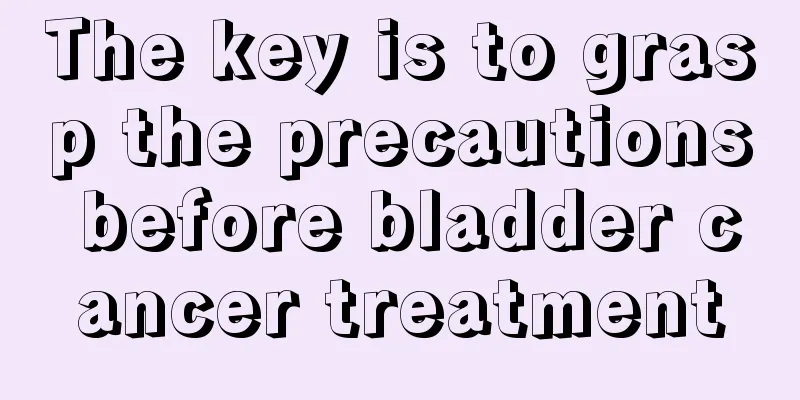Drinking tea like this is equivalent to suicide

|
Men, women, young and old all like to slowly brew a pot of tea and enjoy the holiday leisure time during the weekend. However, not everyone is suitable for drinking tea for health. Let's take a look at the situations in which we need to isolate ourselves from tea leaves. [Be careful when drinking tea when you are sick] 1. Avoid drinking tea when you have a fever The caffeine in tea not only raises the body's temperature, but also reduces the efficacy of medicines. 2. Patients with liver disease should avoid drinking tea Most of the caffeine and other substances in tea are metabolized by the liver. If the liver is diseased, drinking too much tea will exceed the liver's metabolic capacity and will damage the liver tissue. 3. People with neurasthenia should be careful when drinking tea The caffeine in tea can excite the nerve center. If people with neurasthenia drink strong tea, especially in the afternoon and evening, it will cause insomnia and aggravate the condition. You can drink tea once in the morning and afternoon. You may drink scented tea in the morning, green tea in the afternoon, and no tea at night. In this way, patients will be energetic during the day, calm and relaxed at night, and can fall asleep early. 4. Patients with ulcer disease should drink tea with caution Tea is a stimulant of gastric acid secretion. Drinking tea can cause increased gastric acid secretion and increase irritation to the ulcer surface. Drinking strong tea frequently will worsen the condition. But for mild patients, you can drink some light tea 2 hours after taking the medicine. Black tea with sugar or black tea with milk can help reduce inflammation and protect the gastric mucosa, and it also has a certain effect on ulcers. Drinking tea can also block the synthesis of nitroso compounds in the body and prevent precancerous mutations. 5. Avoid drinking tea if you are malnourished Tea has the function of breaking down fat. For people who are malnourished, drinking tea to break down fat will make their nutrition even worse. 6. Anemia patients should avoid drinking tea The tannic acid in tea can combine with iron to form an insoluble final compound, which makes it impossible for the body to obtain sufficient iron sources. Therefore, patients with anemia should not drink tea. 7. Patients with urinary stones should avoid drinking tea Urinary stones are usually calcium oxalate stones. Since tea contains oxalic acid, it will form stones along with the calcium excreted in the urine. If patients with urinary stones drink large amounts of tea, their condition will be aggravated. 8. Patients with coronary heart disease should drink tea with caution For patients with coronary heart disease who have a rapid heart rate, premature beats or atrial fibrillation, drinking a lot of strong tea can speed up the heartbeat, often leading to the onset of the disease or worsening of the condition, because the caffeine and theanine in tea are stimulants that can enhance the function of the heart. On the contrary, patients with a heart rate generally below 60 beats/minute should drink more tea, which is not only harmless but can increase the heart rate and help with drug treatment. 9. Hypertensive patients should not drink strong tea The first brew of tea with less than 50 ml of boiling water per gram is called "strong tea". If patients with hypertension drink too much or too strong tea, the stimulating effect of caffeine will cause their blood pressure to rise, which is not good for their health. 【You can’t drink tea like this!】 10. Be careful when drinking tea when drunk Tea has the effect of stimulating the nerve center. Drinking strong tea after being drunk will increase the burden on the heart. Drinking tea also accelerates the diuretic effect, causing the toxic aldehydes in alcohol to be excreted from the kidneys before they are broken down, which is very irritating to the kidneys and harmful to health. Therefore, people with heart and kidney diseases or poor functions should not drink tea, especially not a large amount of strong tea. Healthy people can drink a small amount of strong tea, and after sobering up, they can eat a lot of fruits or drink vinegar in small sips to speed up the body's metabolism and relieve drunkenness. 11. Be careful when taking medicine with tea There are many types of medicines with different properties, and it is impossible to generalize whether they can be taken with tea. The tannins and theanolide in tea can undergo chemical changes with certain drugs. Therefore, when taking hypnotic, sedative and other drugs, iron-containing blood tonics, enzyme preparations, protein-containing drugs, etc., it is not advisable to take the drugs with tea to prevent affecting the efficacy because tea polyphenols can easily react with iron preparations to produce precipitation. Some Chinese herbal medicines such as ephedra, Uncaria rhynchophylla, and coptis chinensis should not be mixed with tea. It is generally believed that it is not advisable to drink tea within 2 hours of taking medicine. When taking certain vitamin medicines, tea has no effect on the efficacy of the medicines, because the tea polyphenols in tea can promote the accumulation and absorption of vitamin C in the human body. At the same time, tea itself contains a variety of vitamins. Tea itself also has stimulant, diuretic, lipid-lowering, blood sugar-lowering effects, etc., which can enhance the efficacy of the medicine and is also beneficial to the human body in restoring health. In addition, it is often believed among the people that it is not advisable to drink tea when taking tonic medicines such as ginseng and antlers, which also makes sense. [When is it not appropriate to drink tea?] 12. Avoid drinking tea on an empty stomach Drinking tea on an empty stomach will dilute stomach acid, inhibit gastric juice secretion, hinder digestion, and even cause "tea intoxication" phenomena such as palpitations, headaches, stomach discomfort, dizziness, and irritability. It will also affect the absorption of protein and cause gastric mucosal inflammation. If you get drunk on tea, you can relieve the symptoms by putting candy in your mouth or drinking some sugar water. 13. Avoid drinking a lot of tea before or after meals It is not advisable to drink tea about 20 minutes before or after meals. If you drink tea, it will dilute the gastric juice and affect the digestion of food. Moreover, because tea contains oxalic acid, oxalic acid will react with the iron and protein in food and affect the body's absorption of iron and protein. 14. Avoid drinking tea before going to bed It is best not to drink tea within 2 hours before going to bed. Drinking tea will make the mind excited, affect sleep, and even cause insomnia, especially freshly picked green tea. After drinking it, the nerves are easily excited and cause insomnia. 【What kind of tea is not good to drink?】 15. Avoid drinking overnight tea It is better to drink tea right after it is brewed. If tea is left for a long time, it will not only lose its vitamins and other nutrients, but also easily become rancid and spoiled, making you sick if you drink it. 16. Avoid drinking the first cup of tea Because modern tea will inevitably be contaminated by pesticides, fertilizers, dust and other substances during the process of planting, processing and packaging. The first cup of tea is actually the water used to wash the tea. It should be poured with boiling water as soon as possible after it is brewed. This way, the tea brewed will be the most hygienic tea. 17. Avoid drinking inferior or spoiled tea Tea is not easy to store properly as it easily absorbs moisture and becomes moldy. However, some people, because they love tea and want to save money, are reluctant to throw away moldy tea. Spoiled tea contains a large amount of substances and germs that are harmful to the human body and is absolutely not drinkable. If high-quality tea is left for too long after brewing, the tea soup will deteriorate due to oxidation and the reproduction of microorganisms, and such tea should no longer be consumed. 【Who should be cautious about drinking tea?】 18. Pregnant women should avoid drinking tea In particular, it is not advisable to drink strong tea. Tea contains a large amount of tea polyphenols, caffeine, etc., which have many adverse factors on the growth of the fetus in the mother's womb. In order to enable the fetus's intelligence to develop normally and avoid excessive stimulation of the fetus by caffeine, pregnant women should drink less or no tea. 19. Women should not drink strong tea during breastfeeding If you drink strong tea during breastfeeding, too much caffeine will enter the breast milk, which will indirectly make the baby excited after sucking the breast, and may cause less sleep and more crying. 20. Children should not drink strong tea Because when the concentration of tea is high, the content of tea polyphenols is too high, which can easily react with the iron in food, hindering the absorption of iron and easily causing iron deficiency anemia in children. Children can drink some light tea in moderation (one-third of the concentration of tea consumed by adults). Preschool children can drink some coarse tea because the content of tea polyphenols in coarse tea is lower. 21. Elderly people should not drink raw tea The so-called raw tea refers to the roasted green tea that is directly dried without being rolled or twisted after withering. The appearance of this tea is naturally green, and the ingredients it contains are basically the same as the compounds contained in fresh leaves. The low-boiling point aldehyde-alcohol compounds are not converted or volatilized much, and the aroma has a strong green smell. Elderly people will experience strong irritation to the gastric mucosa after drinking this kind of green tea, and may easily suffer from stomach pain after drinking it. Young people will also feel stomach discomfort after drinking it, which is commonly known as "stomach scraping". If you accidentally buy this kind of raw tea, it is best not to brew it directly. Instead, you can put it in a non-greasy iron pan and stir-fry it slowly over low heat to roast away the raw green smell. It is then available for drinking after a slight chestnut aroma is produced. |
<<: Six distress signals indicating lung cancer
>>: Cancer signals revealed by farting
Recommend
Six major hazards of bad breath!
Is bad breath just a problem of breath? Is bad br...
How to store red wine
In our daily life, we often drink red wine. In ad...
What are the common hazards of thyroid cancer
What are the common hazards of thyroid cancer? In...
Is it harmful to use stainless steel tableware for a long time
Stainless steel tableware is quite common in our ...
How to use liquid mosquito coils
No matter what home appliances we use in our dail...
In daily life, patients with nasopharyngeal cancer should pay attention to drinking more water
The diet of nasopharyngeal cancer can achieve bet...
What are the disadvantages of losing temper?
Maybe due to factors such as the stress of life, ...
How to diagnose early gallbladder cancer
Doctors and patients should pay more attention to...
Will my pores become smaller if I stay up late less?
Nowadays, people love beauty very much and everyo...
What are the common sense for preventing tongue cancer
Cancer is something we often hear about in our da...
Five diseases can cause hair thinning
Changes in hair directly reflect the internal hea...
What are the symptoms of kidney cold
Everyone will catch a cold after catching a cold,...
What is the cause of calcium oxalate stones
Calcium oxalate stones are a relatively common ty...
What are the symptoms of erythematous nevus?
A mole is a type of pigmentation that grows on ev...
Lung cancer gene testing
Targeted therapy for lung cancer mainly targets t...









